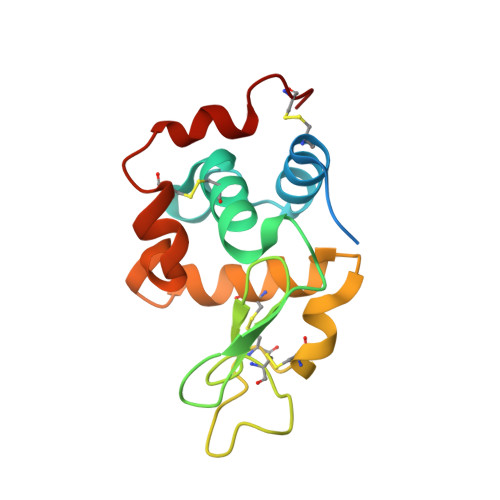Raster-scanning serial protein crystallography using micro- and nano-focused synchrotron beams.
Coquelle, N., Brewster, A.S., Kapp, U., Shilova, A., Weinhausen, B., Burghammer, M., Colletier, J.P.(2015) Acta Crystallogr D Biol Crystallogr 71: 1184-1196
- PubMed: 25945583
- DOI: https://doi.org/10.1107/S1399004715004514
- Primary Citation of Related Structures:
4WG1, 4WG7, 4WL6, 4WL7 - PubMed Abstract:
High-resolution structural information was obtained from lysozyme microcrystals (20 µm in the largest dimension) using raster-scanning serial protein crystallography on micro- and nano-focused beamlines at the ESRF. Data were collected at room temperature (RT) from crystals sandwiched between two silicon nitride wafers, thereby preventing their drying, while limiting background scattering and sample consumption. In order to identify crystal hits, new multi-processing and GUI-driven Python-based pre-analysis software was developed, named NanoPeakCell, that was able to read data from a variety of crystallographic image formats. Further data processing was carried out using CrystFEL, and the resultant structures were refined to 1.7 Å resolution. The data demonstrate the feasibility of RT raster-scanning serial micro- and nano-protein crystallography at synchrotrons and validate it as an alternative approach for the collection of high-resolution structural data from micro-sized crystals. Advantages of the proposed approach are its thriftiness, its handling-free nature, the reduced amount of sample required, the adjustable hit rate, the high indexing rate and the minimization of background scattering.
- Université Grenoble Alpes, IBS, 38044 Grenoble, France.
Organizational Affiliation:

















